Firstly,we would like to extend our appreciation to all the individuals who have provided assistance in the successful completion of this report. The report was collaboratively developed and completed by Saigon Children’s Charity (saigonchildren), the Institute of Sustainable Development Management (MSD), and Cimigo Company, in conjunction with colleagues, partners, and stakeholders.
The survey scope included over 7,000 individuals participating and 30 in-depth interviews. This allowed researchers and experts to understand the real situation and needs of girls from various perspectives.
The quantitative survey was mainly conducted online, with 30 primary questions.
For qualitative research section involved conducting in-depth interviews with 30 individuals from four distinct groups: ethnic Kinh students, parents, teachers, and ethnic minority students. Each group responded to distinct inquiries to provide a more comprehensive explanation of the obstacles faced in girls’ education.
“Boys, in my opinion, will be stronger, capable of higher study, and particularly succeed in subjects like sports and science.”
Female, High School Student, In-depth Interview
The survey findings suggest that students, regardless of gender, are well-acquainted with social norms and gender stereotypes. Gender stereotypes, which are common in society and particularly among female students, can limit self-esteem and impair self-awareness.
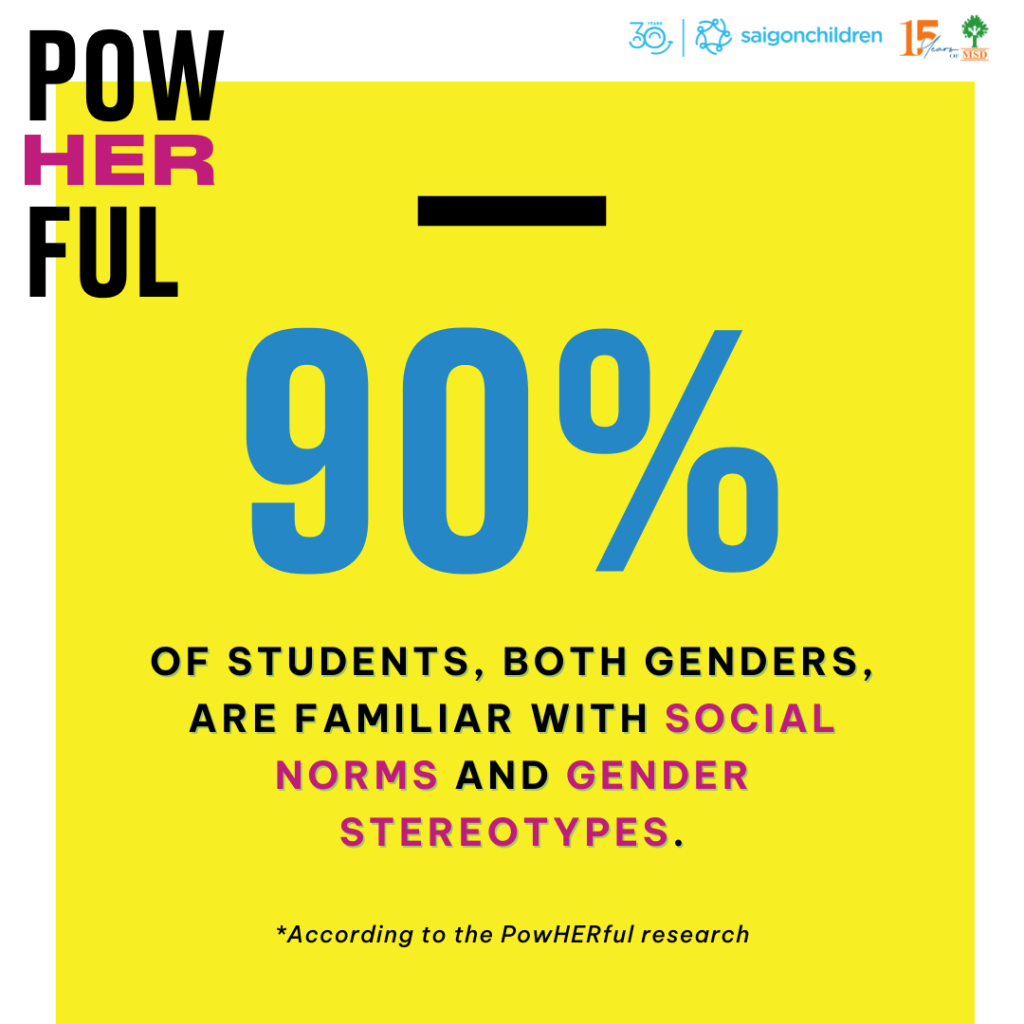
Gender stereotypes such as men being the breadwinners in the family and women being gentle and meek are still widely held in contemporary society, according to research from student and public datasets.
Upon surveying students regarding stereotypes in school, we discovered that textbooks frequently depict male characters in roles that demand physical strength or advanced technical abilities.
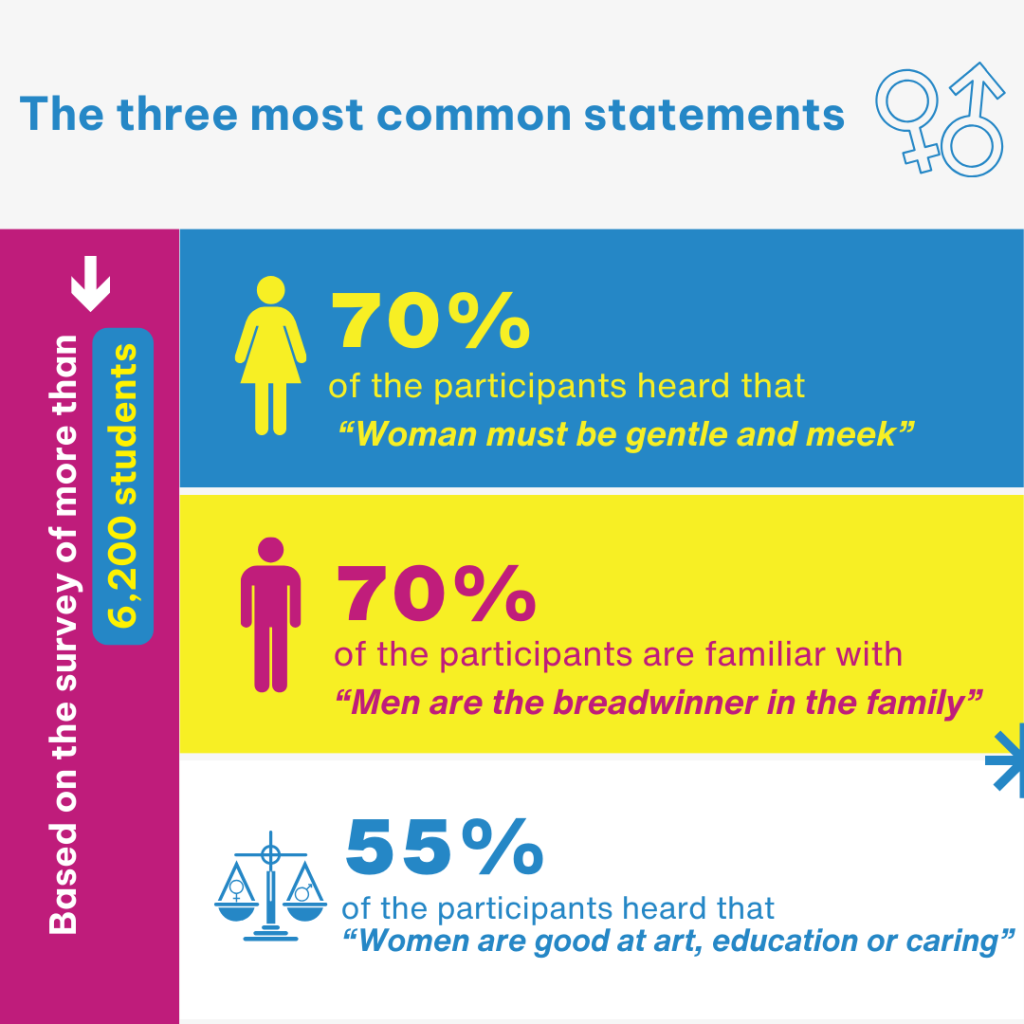
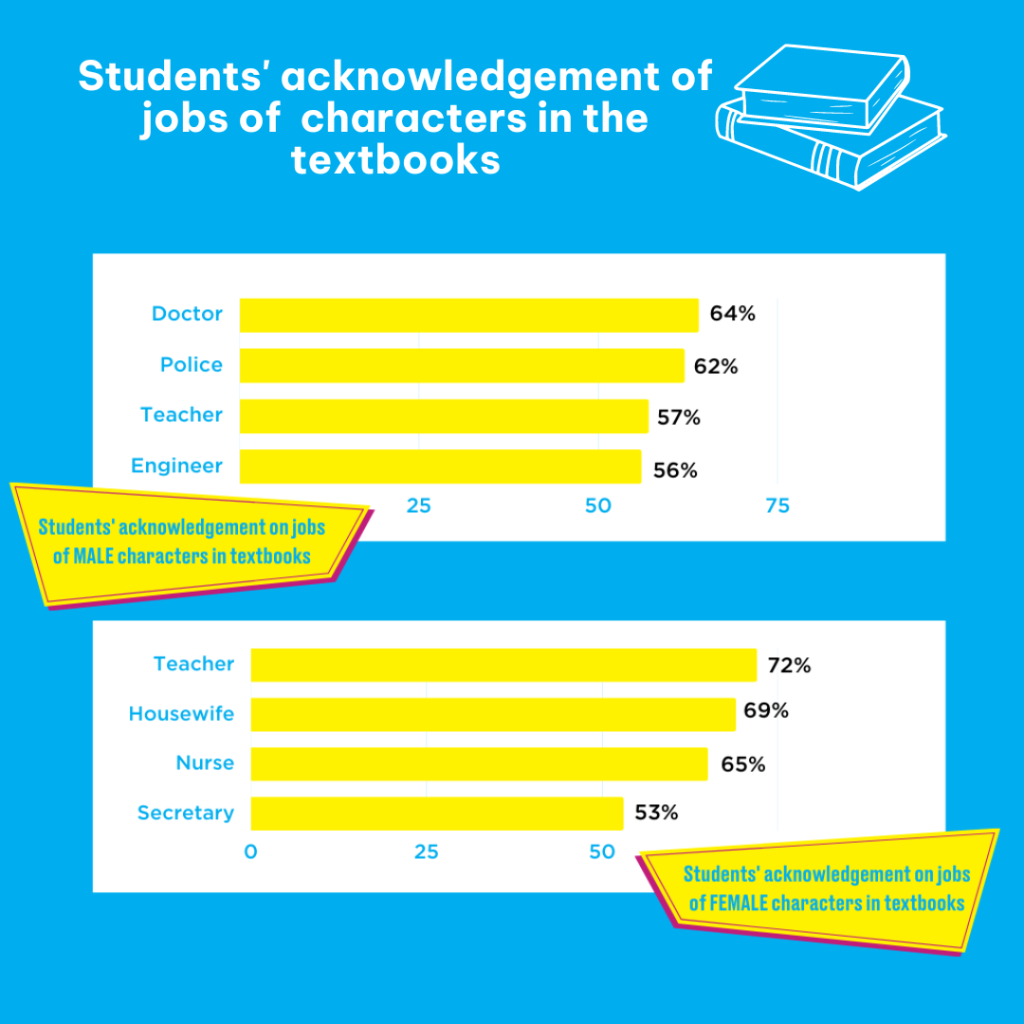
Nine out of nine teachers who participated in in-depth interviews during the qualitative data collection process stated that male students are often considered being excellent in “thinking” and “calculation” subjects. According to the survey, teachers usually unconsciously associate math and science excellence and ability with male students, leading to unfair favoritism in the classroom. This can make female students feel discouraged and less confident in these subjects.


During in-depth interviews, female students reported that their parents often reinforce the belief that menstruation is a private, intimate matter and should be kept hidden from others, especially boys.

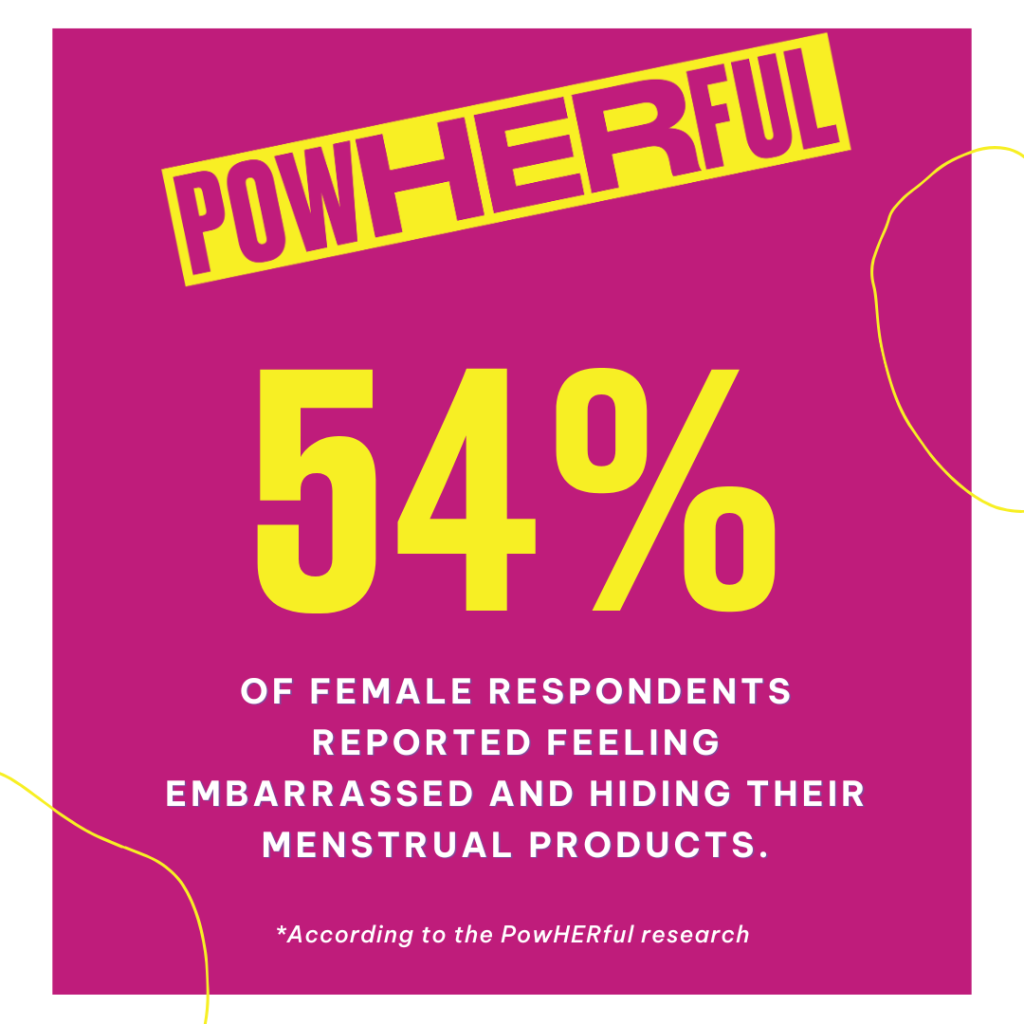
Raising public awareness of the fact that menstruation is not dirty or embarrassing can help female students avoid feeling insecure or embarrassed in class.
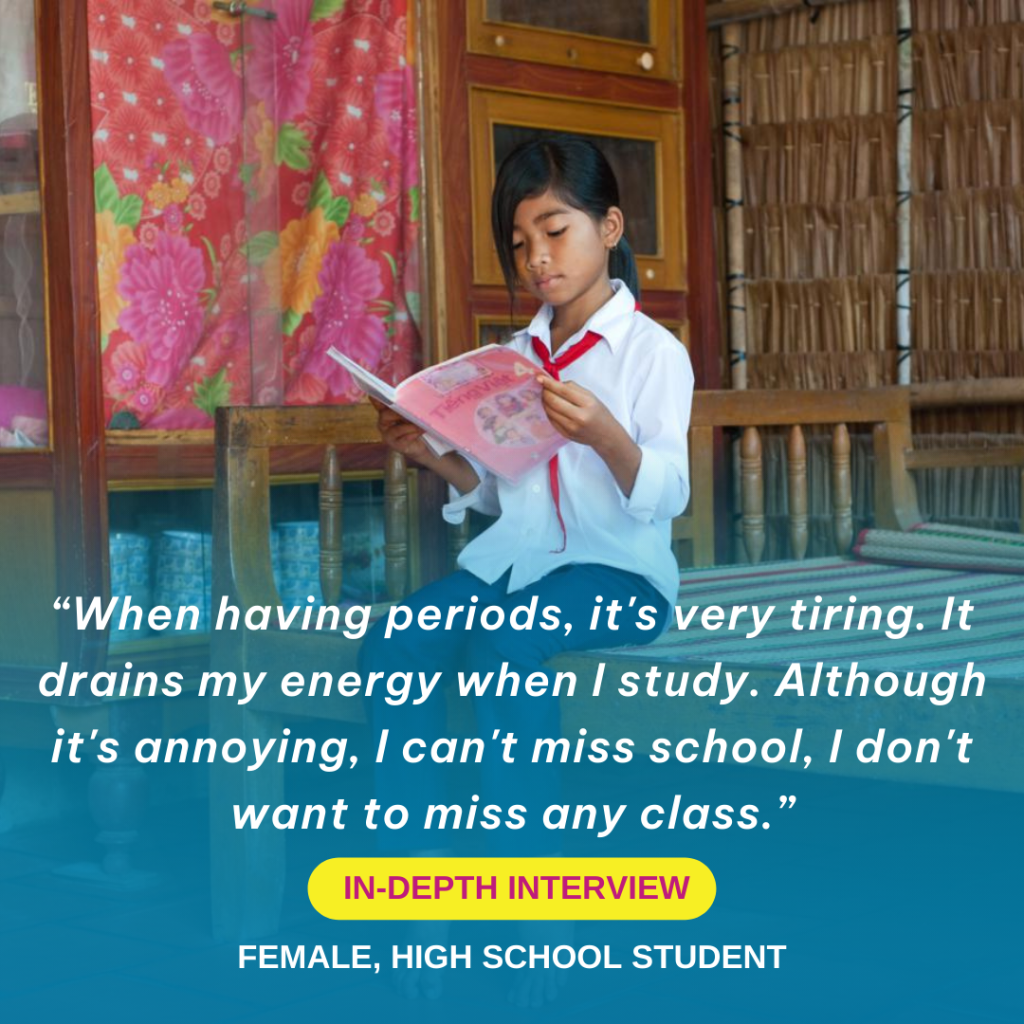
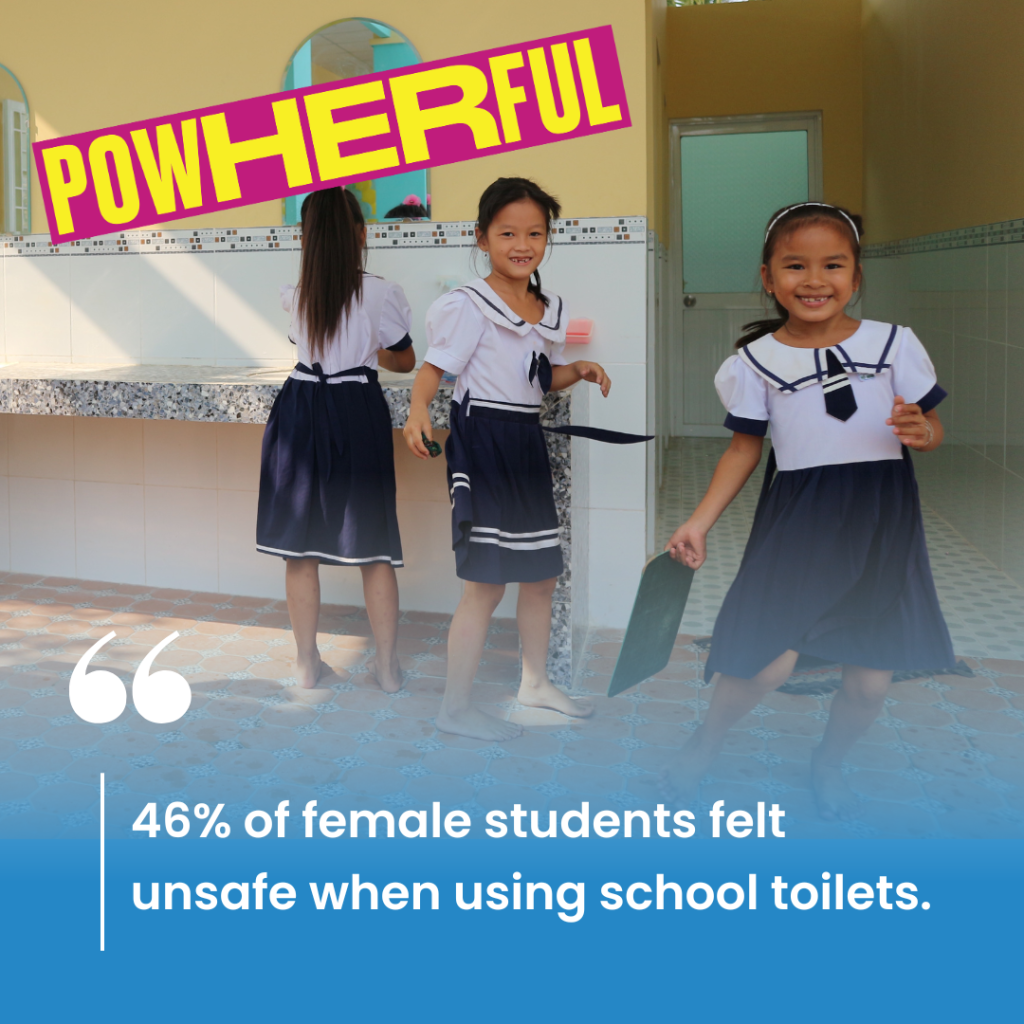
“The toilet’ doors are completely broken. Sometimes they are clean, sometimes they are dirty.
I do not want to use the school’s toilet to change my menstruation products.”
Female, High School Students, In-depth Interview
Only 23% of female students surveyed felt that the school restrooms were clean and comfortable,
while 46% expressed concerns about their safety when using them.
Let's connect